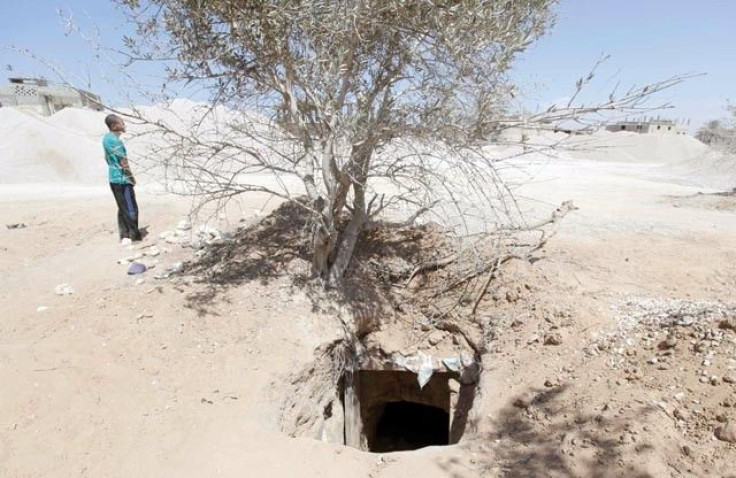Egypt Nabs Suspects In Rafah Attack As It Seeks Bedouin Help

Egypt reported on Friday that nine suspects linked to Sunday's attack in Rafah that killed 16 Egyptian border guards were arrested.
Security forces stormed a house near the scene of the attack and arrested nine men who were sleeping at the time, according to the Associated Press, citing an Egyptian official. One of the men is reportedly the brother of a militant killed in Sunday's brazen assault.
Meanwhile, masked gunmen on motorbikes reportedly opened fire on a police station in or near Arish, which was the scene of clashes between Egyptian forces and militants on Wednesday. No injuries were reported in that assault, though unconfirmed reports say dozens have been killed in clashes this week in the region.
The government has successfully asked for help from Bedouin tribal leaders in the desert peninsula, who pledged to help Egyptian security officials root out militants and find and destroy smuggling tunnels that have been used for years to channel food, weapons and people into Gaza.
"All tribal chiefs of Sinai agreed to the destruction of all tunnels," tribal leader Mohamed Tarabeeni told CNN. "The minister requested the assistance of the Bedouins in securing the region and protecting the borders the same way they did during the 1967 and 1973 wars with Israel."
Egypt is demanding that the Hamas government in Gaza turn over three leaders of the Salafi militant group Army of Islam, whom it blames for Sunday's attack, according to the pan-Arab daily Asharq Al-Awsat. It said one of the three men is a Yemeni. Army of Islam was described by the Qatari news agency Bawaba Ash-Sharq as a Gaza-based terrorist organization seeking to impose Sharia law in Gaza.
Egypt has been boosting its military presence in Sinai since Sunday's attack. Witnesses in Arish counted 60 tanks, 27 armored vehicles and 30 military SUVs in Arish, according to the Israeli news agency Arutz Sheva.
The military buildup has been the biggest seen since a 1979 treaty with Israel demilitarized the peninsula. Israeli officials in Jerusalem told the Associated Press that there is no talk of altering the treaty. However, the assailants are considered a common enemy of both countries, so Israel has not protested Egypt's recent military movements.
Another casualty of the recent militant flare-up in Sinai was Gen. Murad Muwafi, who was sacked by Egyptian President Mohamed Morsi after Sunday's attack.
"Morsi and the military appear to have concluded that the fired intelligence chief, Gen. Murad Muwafi, was a convenient scapegoat after the attack," wrote David Ignacious in Thursday's edition of the Washington Post.
Muwafi had reportedly been held in high esteem by Western and Israeli intelligence officials and had previously warned Morsi about the looming threat of militant activity in Sinai.
© Copyright IBTimes 2024. All rights reserved.












